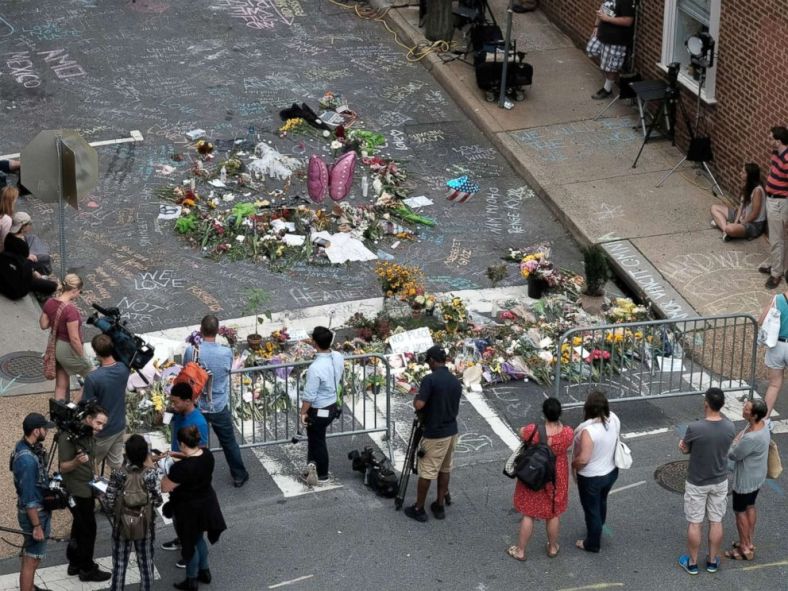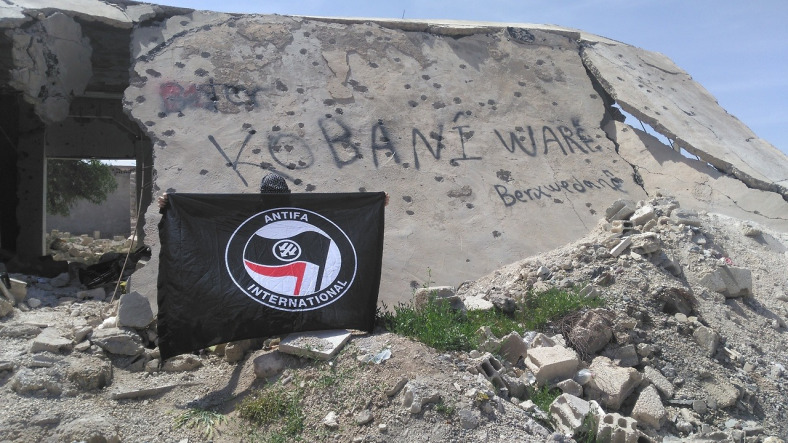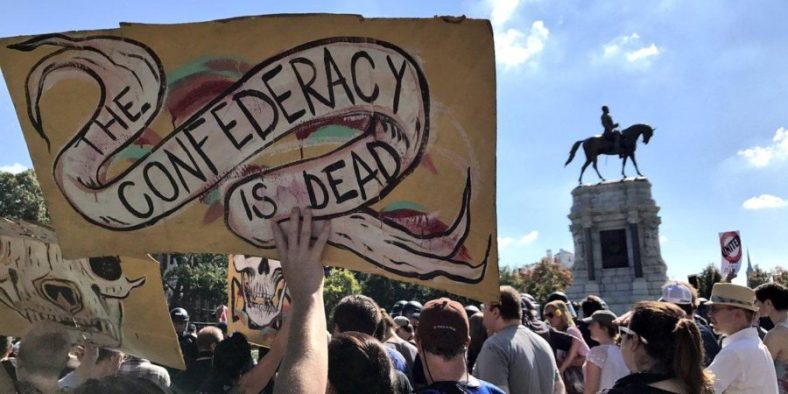
Charlottesville: site of the racist terror attack that took the life of Heather Heyer and injured B. and 18 others.
In the wake of
the racist terror attack in Charlotteville this past summer that left Heather Heyer dead and severely injured 19 others, lots of crowdfunding pages went up to help defray the costs of being attacked by the murderous fascist pig. With close to one million dollars being raised, one would hope that the nineteen survivors of the attack would have nothing to worry about and could concentrate of recovering from the injuries they sustained, knowing their financial costs would be taken care of.
But here’s the problem: none of the Charlottesville crowdfunding campaigns had clear oversight or accountability structures built-in to their efforts, so the well-meaning people that made donations didn’t actually have any say in how the funds would be dispersed. And it’s starting to come out that some of these campaigns have not been operating in a way that most of their donors would approve of.
Case in point: B. is one of the anti-fascists severely injured in the same attack that claimed the life of Heather Heyer. Since August 12th, B. has been unable to work as he awaits surgery for the injuries he sustained that day. He’s also been the subject of an intense doxxing campaign by his attacker’s racist associates, who are keen to harass and further endanger those whom their fellow scumbag failed to murder.
B. requested help paying his rent and putting food on his table from one crowdfunding campaign, which had raised $200,000 allegedly to support the survivors of the Charlottesville attack. Imagine his shock when the powers controlling that fund told him they would not release a penny to him or anyone else until they could prove that they had applied for assistance from government programs like the Virginia Victims Fund first. To do so, B. would have to provide identification, which would in turn make his full name and address a matter of public record, further endangering him. He would also have to agree to “cooperate” with the state, without any explanation of what sort of “cooperation” he would be compelled to furnish.
Contrast this with The International Anti-Fascist Defence Fund: when we received B’s request for help, we had a discussion among the 500+ members of the Fund’s decisions crew about what to do. Through that discussion, we were able to reach consensus about helping him pay his living costs while we recovers and send him the money. That took us all of a week to do. And now we’re blogging about our decision so everyone can see what our decision was. At no time did we require B. to reveal information that could put him in further danger or compromise his personal security.
These are some of the reasons why we established the Defence Fund in the first place. When a horrific attack like what happened in Charlottesville goes down, lots of well-meaning people will put out calls for donations to help the victims. Some of these will, however, have no clue how to actually contact the people they’re claiming to support, much less get the money to them. And some people will put out similar calls but with no intention of ever delivering the money to where it’s needed, putting up unnecessary barriers and hoops for victims to jump through.
Unlike one-shot crowdfunders, the Defence Fund:
To be honest, it’s frustrating for us to continue to operate in this fashion but see the bulk of donations to go fly-by-night crowdfunding pages that have no real accountability or transparency. For example (and not to toot our own horn too loudly!), it is quite clear that everyone would have been better off if
the DSA had turned the $200,000 it raised over to us for dispersal instead of deferring to ever-more-remote authorities and Byzantine councils, steering committees, and liberal intermediaries – none of whom have the experience with antifa support that we do.



